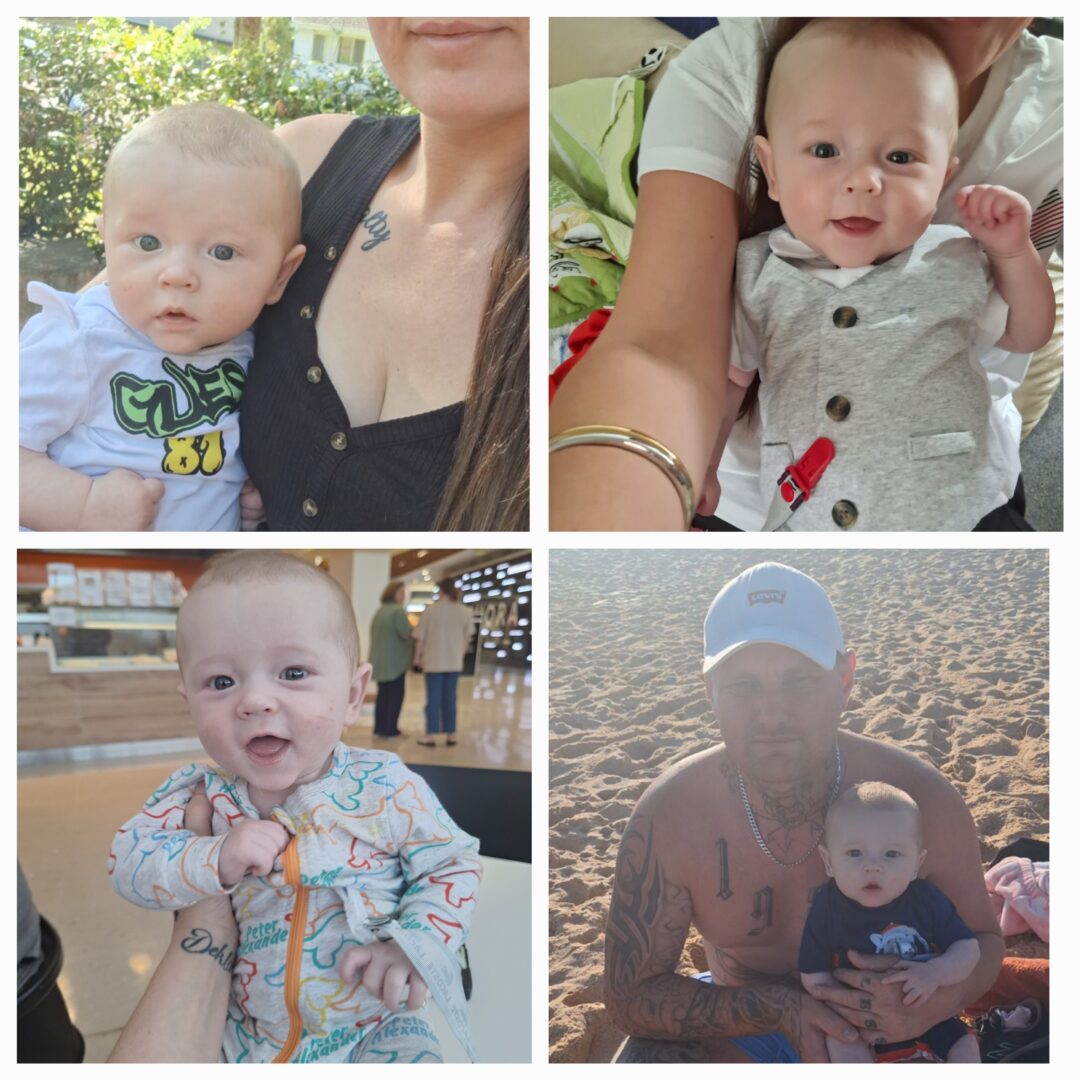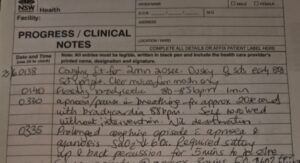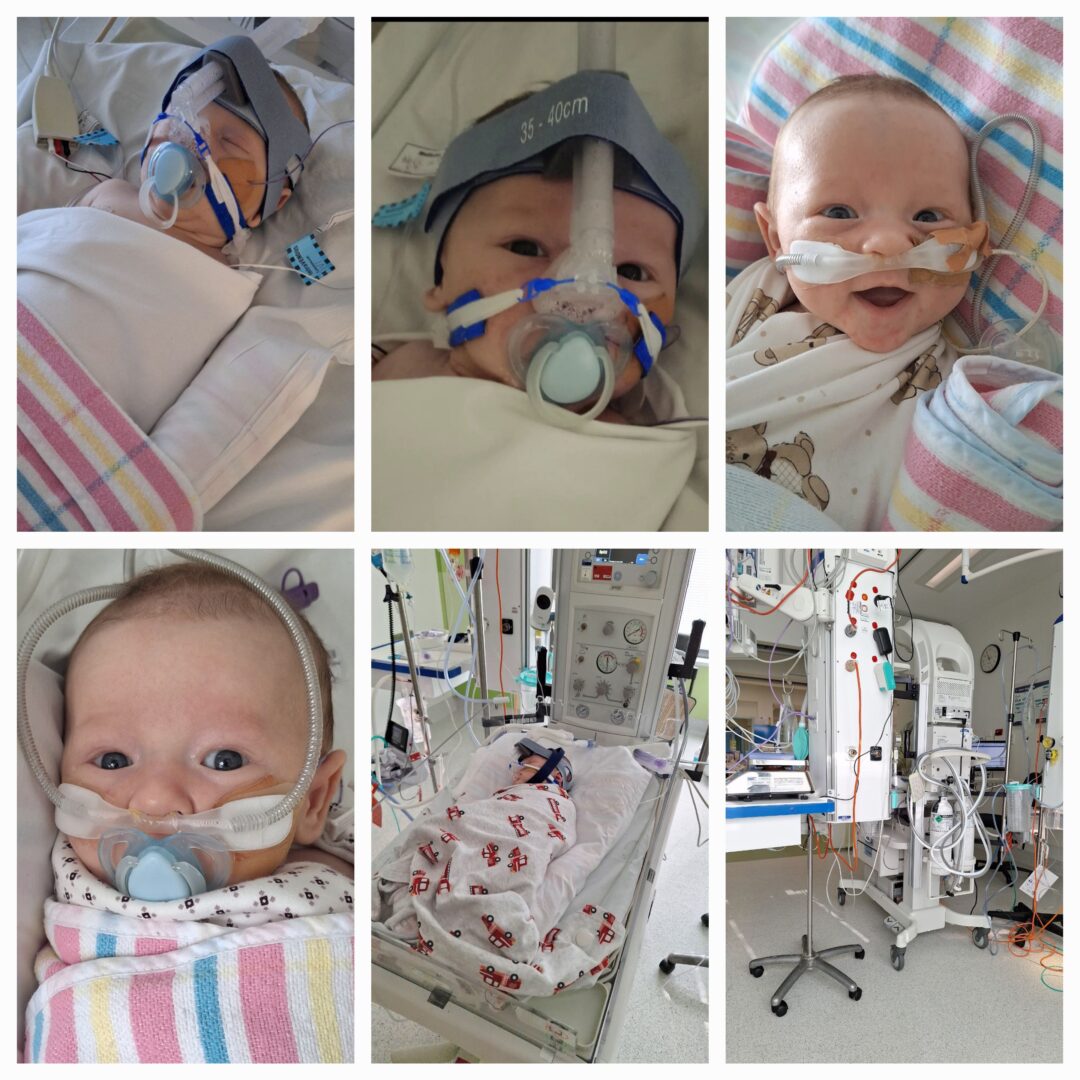Elijah
A Whooping Cough Story
Place of Residence: Wyoming, New South Wales, Australia
Elijah was a healthy baby, until he caught whooping cough and ended up in the hospital for four weeks. His story is an important reminder of how quickly whooping cough can become life-threatening for infants and why maternal vaccination during every pregnancy is so important.
Elijah’s mother, Shantelle, shares the story of how her infant son was infected with whooping cough after his siblings brought it home from school.
How would you describe Elijah?
Elijah was a very happy and smiley baby who loved being around his siblings. He was a healthy baby and didn’t have any chronic or acute medical conditions before he got sick with whooping cough.
How did Elijah become sick?
It all started when Elijah’s siblings came home from school with a cold. They had been vaccinated, but Elijah was too young to be vaccinated himself. On June 17th, I noticed a raspy sound in his chest, and that’s when we took him to the doctor. The doctor decided to do a swab, and that’s when we got the whooping cough diagnosis.

How did his illness progress? At what point did you realize it was serious?
On June 20th, the test results showed he had whooping cough, mycoplasma, and rhinovirus. We rushed him to the hospital as soon as we got the results. He was admitted for a few days, and things seemed to be improving, so we were sent home. But at home, things took a turn for the worse. His coughing got harder to manage. He started passing out after coughing, his face changing color, and his little body going limp. We learned that these were coughing spells.
We rushed back to the hospital, and it was then we realized we were facing something truly terrifying and that Elijah could possibly die from this disease. I asked the nurses a lot of questions. I’ll never forget when I was told that they couldn’t promise me that Elijah would be okay, but they were there to support him as much as possible.
We noticed Elijah’s cough had changed to what we called a “silent cough.” It almost seemed like he was coughing under his breath. I explained to the nurses that his cough was somehow different. It was then we learned he had apnea and was having pauses in his breathing. Elijah was having up to 15 coughing spells an hour. Each one would turn him blue, as he struggled to catch his breath, and then he’d pass out from exhaustion. Nights were the worst; we dreaded the sun going down because that’s when the coughing got worse. We had a nurse with us 24/7, and we could see the fear in their faces. My husband and I took shifts, one of us watching him during the day and the other at night. We barely slept; we just wanted to keep our eyes on him every second. During this time, we were researching other people’s whooping cough stories, and we learned about the true burden of this disease. During this time, Elijah hadn’t developed a fever, which kept us hopeful.
One night, a nurse stepped out for a moment, and I had to hit the emergency button because Elijah was turning blue. They moved us to a higher observation area, but still, the coughing spells and apnea continued. I remember one particularly horrifying moment when he coughed for 15 seconds straight, and it didn’t seem right. I hit the emergency button again, and a nurse rushed in as I watched his entire body go from blue to grey, then stiff. I felt completely helpless, like I was watching him slip away. I stepped back as the doctors and nurses rushed in. I had to leave the room; I couldn’t bear to watch my little boy dying! He was in respiratory arrest due to the apnea. We learned that Elijah’s monitors weren’t working correctly and failed to raise the alarm. We relied heavily on those monitors to keep an eye on Elijah’s apnea.
I stood in the corridor, waiting and watching doctors and nurses rush in and out of Elijah’s hospital room. After what felt like an eternity, I heard a cry. The nurse came out and told me he was okay, but all I could think about was whether his brain was still okay—if he was still there or just a shell. Thankfully, he was okay. After Elijah was stabilized, they transferred him to the neonatal intensive care unit (NICU) at a nearby hospital, and I felt a sense of relief. As soon as we got to the hospital, I finally felt safe enough to close my eyes and rest.
Elijah was put on a machine called “bubbles,” that acted like a life support system. We finally felt like he was in good hands.
I felt completely helpless, like I was watching him slip away. I stepped back as the doctors and nurses rushed in. I had to leave the room; I couldn’t bear to watch my little boy dying!
How long was Elijah hospitalized?
Elijah was in the hospital for about four weeks—two in the NICU and two in the ward, including time in the high observation unit. It was an exhausting and terrifying experience. We had to watch him around the clock, and every cough was a reminder of how fragile his life was. While we were in the hospital, I couldn’t breastfeed Elijah because the medical team was worried that he would aspirate, so he had to be on an IV. Thankfully, we were eventually able to introduce breastmilk again.


Was Elijah vaccinated?
Elijah wasn’t vaccinated against whooping cough at the time of his illness because he was too young. I got a Tdap vaccine eight years earlier (which helps protect against diphtheria, pertussis, and tetanus), but I didn’t realize I needed a Tdap vaccine when I was pregnant to help protect my baby.
What do you want others to take away from your story?
Vaccination is so important. You might not think much about it or believe that something like whooping cough is common, but we nearly lost our little boy multiple times. I’m still traumatized by what I witnessed—seeing my son turn blue, gray, and stiff. Those images don’t fade. Now, every time he coughs, I rush to check on him. The fear never goes away.
Whooping cough is brutal, and it takes an incredible amount of effort from everyone involved to get through it and recover. This is an illness that requires 24/7 monitoring. Elijah would not have survived if he had not been monitored 24/7. I also advise people that if you suspect your child has whooping cough, don’t try to treat it at home – go to the hospital and stay there until you know it’s safe to go home.
What are you doing to help raise awareness about whooping cough?
I’ve been sharing our story with others, especially pregnant women, to make sure they understand the importance of getting vaccinated during every pregnancy. I don’t want anyone else to go through what we did.
BECOME A VACCINE ADVOCATE
There are lots of ways you can make a difference in your community.

